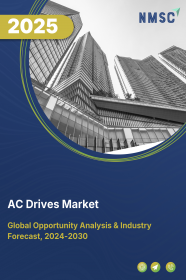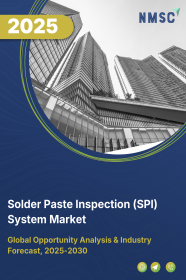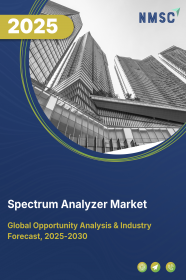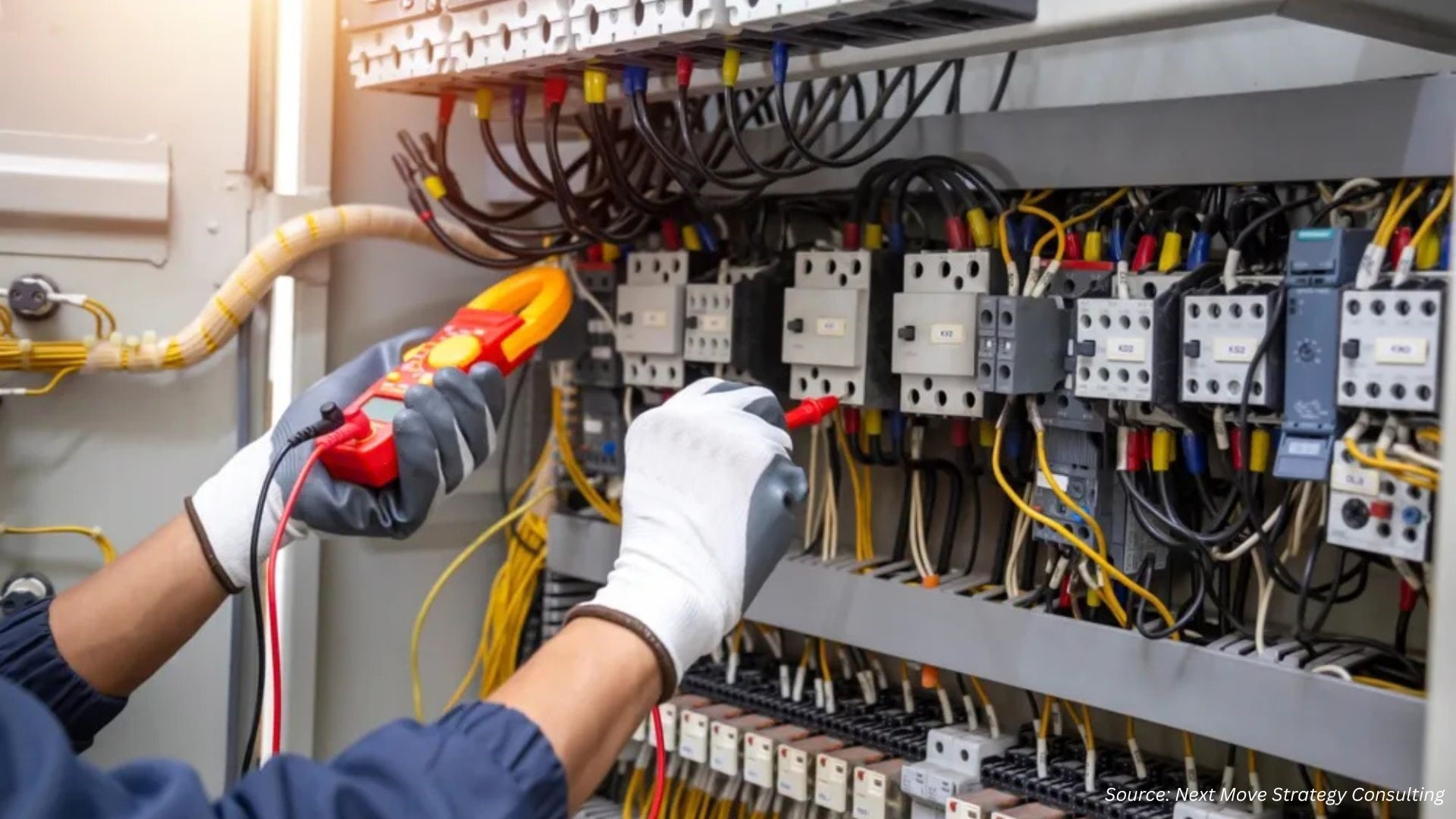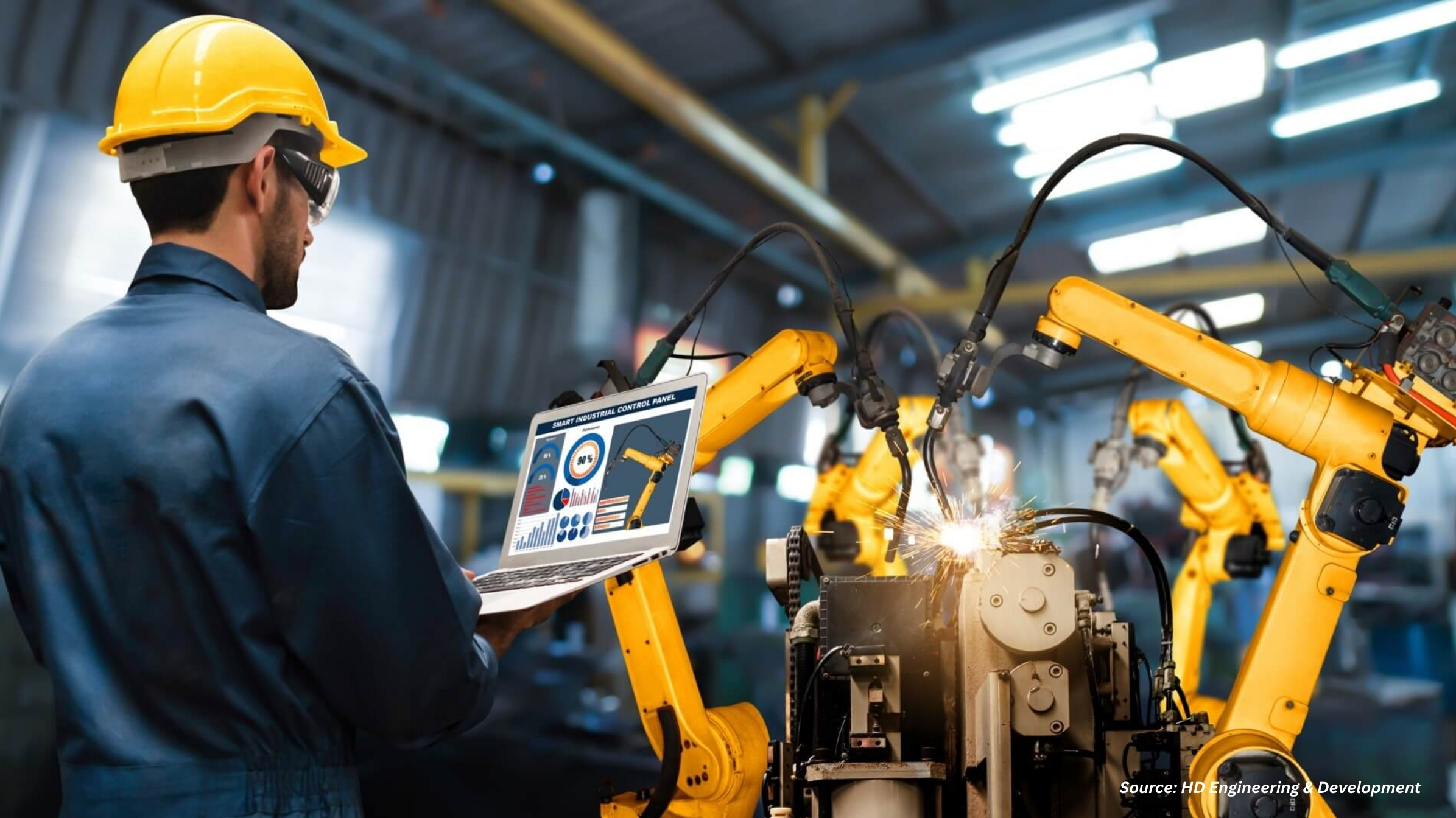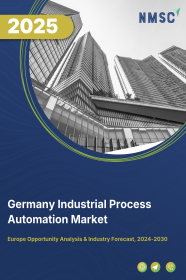
Germany Industrial Process Automation Market by Component {MES (Hardware, Software, Services); DCS (Hardware, Software, Services); PLC (Hardware, Software, Services); SCADA (Hardware, Software, Services); Field Instruments; Industrial Robots; Human Machine Interface; Industrial PCs; Process Analyzers & Drives} and by End User (Oil & Gas, Chemicals & Refining, Energy & Power, Pulp & Paper, Metals & Mining, Pharma, & Others) – Global Opportunity Analysis and Industry Forecast, 2025–2030
Industry: Semiconductor & Electronics | Publish Date: 10-Nov-2025 | No of Pages: 160 | No. of Tables: 121 | No. of Figures: 66 | Format: PDF | Report Code : SE984
Industry Outlook
The Germany Industrial Process Automation Market size was valued at USD 5.45 billion in 2024 and is projected to grow to USD 5.77 billion by 2025. Additionally, the industry is expected to continue its growth trajectory, reaching USD 6.83 billion by 2030, at a CAGR of 3.85% from 2025 to 2030.
The deployment of robotics in Germany’s manufacturing industry is driving industrial process automation by enhancing efficiency, precision, and flexibility. With a robot density of 429 units per 10,000 employees in 2023, robotics are becoming integral in boosting productivity and enabling adaptable manufacturing processes. Similarly, the rapid growth of Germany's chemical sector fuels the demand for automation technologies that ensure efficiency, safety, and regulatory compliance in processes like mixing, reactions, and packaging.
However, regulatory and compliance challenges remain a barrier, as businesses must navigate complex frameworks, which delay the adoption of automation systems. The integration of artificial intelligence (AI) and machine learning (ML) offers significant growth potential by enabling predictive maintenance, optimizing workflows, and improving decision-making, further advancing automation capabilities and positioning Germany as a leader in intelligent manufacturing solutions.
Robotics Deployment Accelerates the Germany Industrial Process Automation Market Growth in Germany
The deployment of robotics in Germany’s manufacturing industry is a key driver for industrial process automation, as businesses seek to enhance efficiency, precision, and adaptability in production processes. Robotics streamline operations by increasing production speed, reducing human error, and enabling more flexible manufacturing capabilities. According to the International Federation of Robotics (IFR) in 2024, Germany’s robot density reached 429 units per 10,000 employees in 2023, highlighting the widespread adoption of robotics across various sectors. This growing reliance on robotics underscores the industry’s commitment to boosting productivity and expanding the applications of automation technologies.
Chemical Sector Growth Fuels the Germany Industrial Process Automation Market Demand
The rapid expansion of Germany’s chemical sector is further driving the demand for industrial process automation. As manufacturers strive to scale production, control costs, and improve product consistency, automation technologies are increasingly seen as essential tools. Technologies that optimize processes such as mixing, chemical reactions, and packaging help ensure operational efficiency and safety while meeting stringent regulatory standards. As chemical sales continue to rise, the need for advanced automation solutions grows, allowing companies to improve efficiency, reduce errors, and meet market demands more effectively.
Regulatory and Compliance Challenges Restrain the Germany Industrial Process Automation Market Expansion
Despite the positive drivers, regulatory and compliance challenges remain a significant hurdle for the Germany industrial process automation market. Businesses must navigate complex regulatory frameworks that require significant adjustments to automation systems to ensure compliance. These challenges delay the implementation of new technologies, as companies must invest additional time and resources to meet industry standards, which slows down the broader adoption of automation solutions across sectors.
AI and ML Integration Unlocks Future Growth in Industrial Process Automation
The integration of artificial intelligence (AI) and machine learning (ML) presents a major opportunity for the industrial process automation market in Germany. AI and ML enable predictive maintenance, optimize production workflows, and improve decision-making with minimal human intervention. By enhancing operational efficiency, reducing downtime, and improving product quality, these technologies offer immense potential to boost productivity and drive innovation. As the adoption of AI and ML continues to grow, they further enhance the capabilities of automation systems, positioning Germany at the forefront of intelligent manufacturing solutions.
Competitive Landscape
The promising players operating in the industrial process automation industry Siemens AG, Schneider Electric SE, Honeywell International Inc., ABB Ltd., Mitsubishi Electric Corp., Emerson Electric Co., Rockwell Automation, Bosch Rexroth AG, Yokogawa Electric Corp., Endress+Hauser Group Services AG, FestBV, Phoenix Contact GmbH & Co. KG, WAGKontakttechnik, Omron Corp., and Bosch Rexroth AG, and others.
Germany Industrial Process Automation Market Key Segments
By Component
-
Manufacturing Execution Systems (MES)
-
Hardware
-
Software
-
Services
-
-
Distributed Control Systems (DCS)
-
Hardware
-
Software
-
Services
-
-
Programmable Logic Control (PLC)
-
Hardware
-
Software
-
Services
-
-
Supervisory Control and Data Acquisition (SCADA)
-
Hardware
-
Software
-
Services
-
-
Field Instruments
-
Industrial Robots
-
Human Machine Interface (HMI)
-
Industrial PCs
-
Process Analyzers and Drives
By End User
-
Oil and Gas
-
Chemicals and Refining
-
Energy and Power
-
Pulp and Paper
-
Metals and Mining
-
Pharma
-
Cement & Glass
-
Others
Key Players
-
Siemens AG
-
Schneider Electric SE
-
ABB Ltd.
-
Mitsubishi Electric Corp.
-
Rockwell Automation, Inc.
-
Bosch Rexroth AG
-
Yokogawa Electric Corp.
-
Endress+Hauser Group Services AG
-
FestBV
-
Phoenix Contact GmbH & Co. KG
-
WAGKontakttechnik
-
Omron Corp.
-
Bosch Rexroth AG
Report Scope And Segmentation
|
Parameters |
Details |
|
Market Size Value in 2025 |
USD 5.77 Billion |
|
Revenue Forecast in 2030 |
USD 6.83 Billion |
|
Value Growth Rate |
CAGR of 3.85% from 2025 to 2030 |
|
Analysis Period |
2024–2030 |
|
Base Year Considered |
2024 |
|
Forecast Period |
2025–2030 |
|
Market Size Estimation |
Billion (USD) |
|
Growth Factors |
|
|
Companies Profiled |
15 |
|
Market Share |
Available for 10 companies |
|
Customization Scope |
Free customization (equivalent to up to 80 working hours of analysts) after purchase. Addition or alteration to country, regional, and segment scope. |
|
Pricing and Purchase Options |
Avail customized purchase options to meet your exact research needs. |

















 Speak to Our Analyst
Speak to Our Analyst



